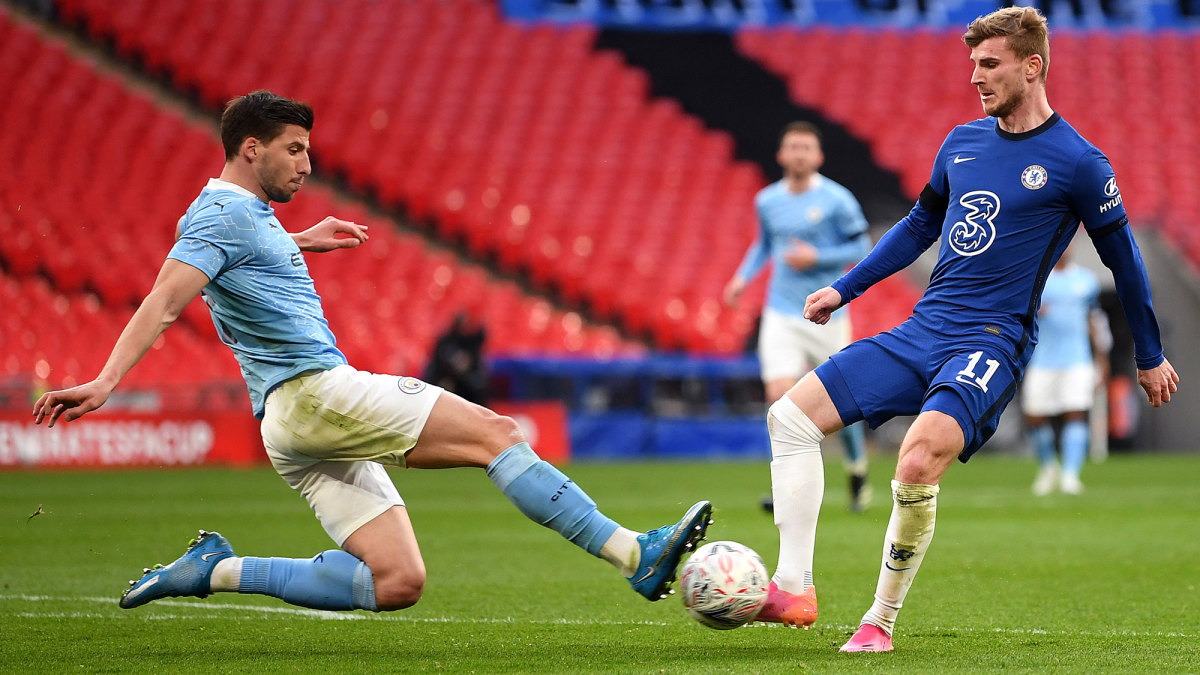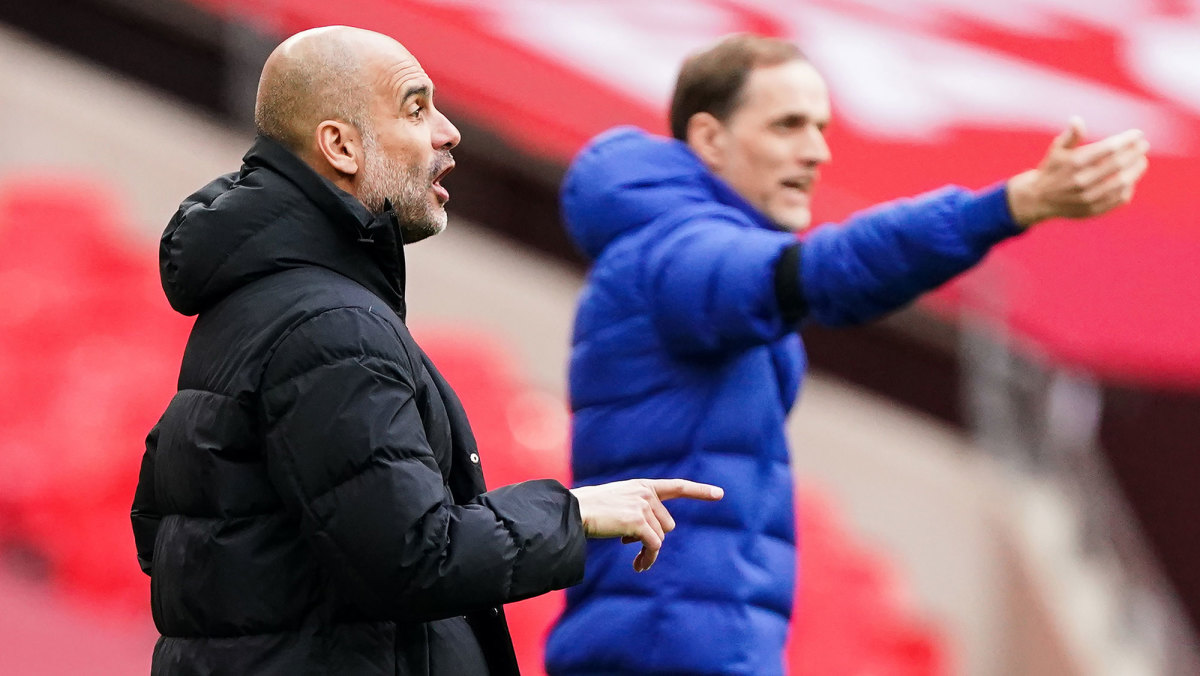The Symbolism of This All-English Champions League Final

In 1986, Manchester City scored three times in the final five minutes but still lost the Full Members’ Cup final 5–4 to Chelsea, an occasion that, if nothing else, suggests just how much football has changed in the 35 years between that and the clubs' meeting in the Champions League final at the end of the month.
To begin with, there is the status of English football. The Full Members’ Cup was only inaugurated to provide the clubs with extra income, filling the gap in the schedule left when English clubs were banned from European football in the aftermath of the Heysel Stadium disaster in 1985. It was never popular and so ill-conceived that the final was played the day after a full league program, meaning 20 of the 22 players who started the game were kicking off their second game in 24 hours.
But the broader point is that English football at the time was in crisis. The '84–85 season was the worst in English football’s worst decade. It included not only Heysel, but the fire at Bradford that killed 56 fans, and multiple riots. It was from that background that the Premier League was founded in '92. Its success has been extraordinary. Man City vs. Chelsea will be the third all-English Champions League final of the past 13 years—and the second in the past three—and yet there’s a lingering sense that English teams, given their resources, have underperformed in Europe.

Arsenal falling just short of beating Villarreal in the Europa League semifinals is all that prevented this from also being the second time in three seasons that the Europa League final is between two Premier League sides (Man United will play Villarreal in Gdansk for the second-tier European title). The huge advantage English teams enjoy in terms of broadcast rights (and their comparatively equitable distribution) is perhaps beginning to tell, which is one of the aspects that has shaken the likes of Real Madrid and Juventus into their Super League machinations.
The notion of a Big Six—or at least this Big Six—may strain the credulity these days, but the Premier League does have more competitive clubs than any of the other major leagues (and the unusual struggles of Paris Saint-Germain, Juventus and the Spanish giants in this weirdest of seasons does not change that). After a few years in which Champions League knockout ties have been characterized by wild, attacking football, it always seemed likely that the first team to combine a high press with some sort of defensive solidity would have a competitive advantage. Both Pep Guardiola and Thomas Tuchel appear to have achieved that this season; and it’s probably not a coincidence that they were able to hone their methods in a league that at least provided something of a challenge to them.

But in a sense, this isn’t really about national leagues anymore. In the context of the past month and the botched launch of the Super League, there couldn’t be any more symbolically appropriate final. After the Full Members’ Cup final, both Man City and Chelsea were relegated, City as far as the third flight. In '86, they’d won the league three times in total. City this season will make it nine league titles between them in the past 16 years. What has changed is obvious: enormous external investment.
When Roman Abramovich bought Chelsea in 2003, it transformed the economics of English football, something which Arsenal still rues, given it effectively neutered the benefits it should have attained from the construction of the Emirates Stadium. Sheikh Mansour followed at Manchester City in 2008. The club's wealth was not dependent on football and was essentially, unlimited. The hardship of the pandemic has barely affected them. They are clubs that are not dependent on fans coming into the stadium. In the past decade, Chelsea’s net spend on transfers is $600 million, City’s over $1 billion.
That’s why the traditional elites are so frightened of them (and PSG, the third of the three petroclubs). PSG’s world-record signing of Neymar from Barcelona in 2017 generated an inflationary spiral that has caused huge losses at several major clubs, even before the pandemic. That brought desperation, which in turn led to the proposed Super League, which would have guaranteed income for a self-selected elite. And it was the fact that they didn’t need it, the fact that reputation is probably more important to those clubs, that led PSG to turn down the invitation to join while City and Chelsea were evidently the least enthusiastic of the 12 rebels and the first two clubs to register their intent to quit the breakaway.
Three of the four Champions League semifinalists were petroclubs, and Chelsea's emphatic triumph over Real Madrid showed just how big a mess the grandest of the traditional elite is facing. A Man City vs. Chelsea final is a fitting finale to this season of turbulence. Their eras of domination may just be beginning.
More Champions League Coverage:
